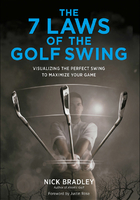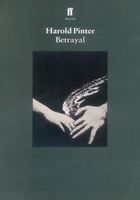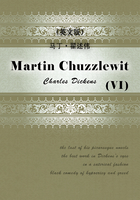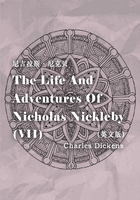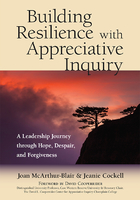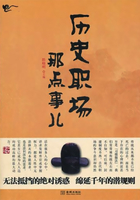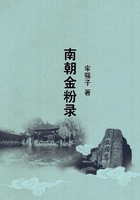ANDERSON COOPER JOURNALIST
My father died during heart bypass surgery when I was ten years old. When I was twenty-one, my twenty-three-year-old brother committed suicide. He jumped off the terrace of our family's penthouse apartment as my mother pleaded for him to stay put. I think that anytime you experience traumatic loss early on it changes who you are and drastically affects your view of the world. At least that was the case with me.
My brother's death occurred the summer before my senior year of college, and I spent the remainder of my time at school reeling from it. I retreated emotionally as I attempted to understand what had happened and why. I was worried about my mom and even had serious doubts about my ability to survive and operate in the world. So when graduation rolled around, I felt lost, to say the least. I asked my mother what she thought I should do for work. "Follow your bliss," she said, quoting Joseph Campbell. But what was "my bliss"?
I remember making a list of all the attributes I wanted in a career and all the things I wanted out of life: I didn't want to wake up at sixty and be in a gray suit in a gray office or a gray cubicle. I wanted to do something that had a purpose. I wanted to lead an interesting life. I wanted to learn new things every day. I wanted to travel. But even though I was in touch with what I wanted, I had trouble taking a first step. I felt that any move I made would close off other opportunities, and I became obsessed with the notion of keeping my options open. This turned into a kind of paralysis that took me almost a year to get over.
I knew rationally that my fear of taking a step didn't make sense. I had talked to enough successful people to know that the path to success is often meandering. It can appear to be a series of random events and only in retrospect can one look back and connect the dots. That knowledge was very comforting and eventually helped free me from the idea that whatever choice you make at age twenty-one or twenty-two really matters. It doesn't really matter. When I was in school I used to think that there was some sort of permanent record, like I would be continually judged for all my actions. But there is no permanent record. I've never been in a job interview where anyone has asked me for my grades in college or how I did on the SAT.
When I was growing up, news, and to some extent war, had always been a part of my life. I have fond memories of watching the CBS evening news with my family every night at dinner. As a child, I collected toy soldiers and weapons. In high school and college I took it upon myself to read a lot about the Vietnam War and I was especially interested in the foreign correspondents and photographers who covered it. Working as a foreign correspondent seemed like a very worthwhile adventure and something I realized I wanted to do. News, however, proved to be a hard business to break into.
I applied for an entry-level job at ABC doing basic office tasks—photocopying and answering phones—but I couldn't even get an interview. I think they were mildly interested but they were going through a hiring freeze at the time. I applied to a couple of other networks, but to no avail. I thought, Such is the value of a Yale education! It was depressing and it seemed like the end of the road.
A kid I had gone to high school with was working at Channel One, an agency that produces a youth-oriented news program broadcast to many high schools across America, and he was nice enough to alert me to an opening for a fact-checker. I was desperate to get my foot in any door, so I applied for the job and got it. I fact-checked for six months, but I saw no path to becoming a foreign correspondent anywhere in sight.
I'm a big believer in creating your own opportunity if no one gives you one. When you work at a company, people there tend to see you a certain way. In my case, they viewed me as a fact-checker—so the notion that I could be a reporter didn't occur to anybody. Had I asked, they would have probably said no because I wasn't on the right career path. Sometimes you have to do something drastic to change people's perception of you. For me, that was hatching a plan to quit my job as a fact-checker and go overseas to shoot stories by myself. I would make the stories as interesting and dangerous as possible, and then offer them to Channel One for such a low price that the stories would be hard to refuse. I knew I could live so cheaply overseas that it wouldn't matter how little I earned. A friend agreed to make me a fake press pass and loan me his home video camera. I didn't really know what I was doing, but I figured I'd learn along the way.
For my first story, I flew to Thailand and met up with some Burmese refugees who were working to overthrow their country's military dictatorship. They agreed to sneak me into Burma and hook me up with some students who were under fire. The story was compelling; my roll of the dice paid off; and Channel One bought my video. After I freelanced this way for about a year, Channel One finally hired me as a full-time correspondent. I worked there for about two and a half years, filming stories from a variety of war-torn regions around the globe, including Somalia, Bosnia, and Rwanda. I continued to shoot on a home video camera and travel alone, but at least someone else was picking up the bills.
I used to experience tremendous anxiety before each trip. There was something about untethering from my familiar surroundings that got to me. Traveling by myself for indefinite periods of time, I went to remote locations where I could have very easily disappeared. It felt as if I were floating in space without any support.
When I landed in a developing country, the challenge continued. Living on about five dollars a day, I slept in dingy hotels with cockroaches crawling on the walls and camped out on roofs of buildings. I would go weeks at a time without talking to people and I clung to a makeshift routine for stability: Lunch at noon. Dinner at six. I remember once seeing Christiane Amanpour in Somalia. She had a vehicle and was accompanied by a whole crew. That kind of career seemed so far away from anything I was doing. I was just this kid with a home video camera. It was very trying and lonely.
When I would return home, I still felt alone. My friends were moseying along, living their lives, and, understandably, couldn't relate to the world I had been living in. Coming from some transformational two weeks where I'd seen malnourished children die before my eyes, stepped over decaying bodies in the street, been shot at by snipers, and met remarkable people facing huge obstacles, I couldn't really relate to my friends' world either. It was as if we no longer spoke the same language.
I was miserable a lot of the time, but even so, I knew that this was the career for me. The more I saw, the more I needed to see. There was no place I wouldn't go. I didn't let risks get in the way and I couldn't imagine doing anything else. I know this sounds irrational, but I literally felt as if I had no other options. It wasn't as if I were dabbling in this. I felt as if I didn't have a choice. It had to work out. There was no Plan B.
I would never have been as driven to do this kind of work had I not experienced such intense personal loss. When my father died, the world suddenly seemed like a scary place. I didn't feel that I could rely on other people, and I became fearful of what else might happen. These emotions were compounded when my brother committed suicide. I wanted to become autonomous, prepare myself for any eventuality, and protect myself from further pain. I think that's part of what drew me to war zones and other places where people's whole lives have been turned upside down. I wanted to learn about survival from those who were still standing. I also felt comfortable, in a weird way, being in places where the language of loss was spoken. In America people aren't nearly as comfortable discussing it. I understood what the people were going through a lot better than I would have without experiencing what I did.
When my contract with Channel One expired, ABC finally hired me—as a correspondent. As it turned out, not getting that entry-level job there was the best thing that ever happened to me. Had I gotten it, I would have spent about two years as a desk assistant and then maybe worked my way up to, I don't know, production assistant? Movement at the networks at the time was glacial. You could be there for years before even being sent out to shoot a local story. There's no way I would have ever been made a full-time news correspondent after three years. There was no established, internal path to doing that.
I eventually moved on and got hired by CNN to anchor their morning show. Unfortunately, that didn't work out. I was really nervous and uncomfortable. My performance was just terrible and they very quickly started to think, Why have we hired this guy?
The thing with being fired is that no one tells you they're about to do it—you just get fired one day. In the news business they sometimes don't even fire you in person, you read about it in the paper instead. I didn't know how badly I was doing at CNN until about three months into it when I got sent to Afghanistan without a camera crew. I arrived in Afghanistan with just my little home video camera, called back to the office to retrieve my voice mail, and some other anchor answered my phone—in my office. He had taken over my office! It was only by volunteering for jobs that nobody else wanted that I was able to fight my way back. I started filling in on any anchoring slot I could get my hands on. I would fly into Atlanta and anchor eight-hour days on Saturday and Sunday, when no one else wanted to work. I was so motivated because I still viewed it as "I don't have another option. There is no Plan B."
I've tried to eliminate fear from my life as much as possible. If there's something I'm nervous about, I try to plunge head first into it. For instance, up until pretty recently, I've had a fear of speaking in front of a crowd. It would make me nervous, sweaty, and sick. I know this might seem strange because I've been on the air for years, but it's completely different with a camera and a small crew. It's very intimate and it always felt very natural—as if I were talking to only one person through the camera. Even a news set never made me nervous—it's just a dark room with a camera. But being in a room in front of thousands of people is a whole other thing. So over the last couple of years I started doing public-speaking events on weekends and in my spare time. I flew around the country and forced myself to do it, and it worked—I'm now able to speak in front of crowds.
I rarely ask people for advice or permission when I'm planning on doing something I feel strongly about. That only opens the plan up to be crapped on. Had I asked the producers at Channel One if they would be supportive of my going out to make war videos, they would probably have said no. It's easier to say no than it is to say yes, and they might not have wanted to feel responsible for me in any way. So I just did it. I think that's how I approach just about everything.
By the way, I did mention my plan to one or two Channel One colleagues and they all said things like "You'll never be on air" or "You'll never be hired as a correspondent here." Even once I got hired people said things like "Okay, so you are working for this little show that's seen in high schools, but you'll never get a job at a network" or "You're going to have to start doing something at a small local station in the United States if you're ever going to get a job at a major network." All of which was incorrect. I'd much rather follow my gut, do something, and if it doesn't work out, have it crapped on then.
It seems like a lot of people, especially young ones, are imbued with the sense that they can become successful (however they define it) in some sudden, magical way. Some people do. They make a reality show or a sex tape and become rich overnight. But that doesn't happen to the vast majority of people, nor is it ultimately the way you want to become successful. Most people sweat it out for years and encounter some degree of humiliation and failure along the way.
ANDERSON'S PEARL
I tell journalism students that there are three main steps to take: First, figure out what gets your adrenaline going. Next, figure out a way to make a career out of your passion. And finally, outwork everyone around you. (Come in earlier, leave later, and volunteer for everything that others don't want to do. Don't wait to be asked to do something. Take it upon yourself and do it.) But you're only going to be able to outwork others if you're genuinely passionate about what you are doing. Otherwise it's going to feel like, "Why do I want to stay late when I could go out with my friends?" When you're much more interested in what you're doing than going out for a drink with friends, you've found your bliss.

